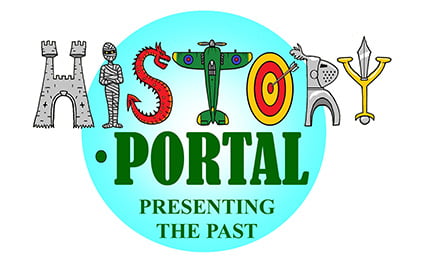
It became famous because the Ghent army beat a drunken one from the nearby town of Bruges. I am sure it has happened before, but it is the first time an army has actually admitted they were all drunk!
Though it could also have been recorder as the first use, in battle, of The Organ Gun, but that’s not so much fun.
It happened in Belgium on 3 May 1382, on a field between Bruges and Ghent.
It had been building up for three years!
Count Louis II of Flanders, their lord, had blockaded the Ghent-Oostende canal, which was the route Ghent used to get their goods to the sea. At the same time, Bruges, which was between Ghent and Oostende, was happy to support the Count as they were benefiting financially, by stopping Ghent’s goods reaching the sea. You see this was not surprising as they were both rival commercial centres.
Eventually, Ghent was suffering so badly that they realised they had no option but to rebel against the Count, which meant that they would have to fight Bruges for access to the sea.
On the day they attacked
Their chosen day was the day Bruges was celebrating the Procession of the Holy Blood, a religious holiday in Bruges. This meant that by the time the Bruges army had arrived at the battlefield, they had visited many inns and taverns of the city, and then, it is claimed, that on their way to the battlefield they stopped for a few more, to give themselves that bit more courage!
They met Ghent’s new weapon!
Once Bruges’ soldiers came into range, Ghent’s mobile artillery fired a volley of several hundred ribauldequins. The ribauldequin was a new weapon, also called an “organ gun”. It was made up of several small-calibre iron barrels sitting on a platform that fired a shower of iron shot. Today, we would call it an early machine gun. The effect was that immediately, the Bruges army collapsed in confusion and retreated in total disorder.
Ghent won.
History recorded it, however …
But of course, it couldn’t go down in history as a drunken battle, it wouldn’t have looked very good in the history books, so it didn’t. Fortunately, they were able to claim to the world that it was the first time that a machine gun, the organ gun, had been used in battle.
The organ gun was possible because they had worked out how to use gunpowder in a repeating gun. As we all know it was the discovery of gunpowder that changed so many conflicts across the world and is still doing so today.
I suppose it could be said that they were right not to call it a drunken battle but the first one in which a primitive machine gun had been used, assuming, of course, that, that is correct.
Isn’t history fun!
10 questions to discuss:
- Compare and contrast the motivations of the Ghent and Bruges factions leading to the confrontation at Beverhoutsveld.
- Analyze the potential impact of the Bruges army’s alleged intoxication on the course of the battle.
- Evaluate the historical significance of the “organ gun” and its role in the development of firearm technology.
- Discuss the ethical considerations of portraying historical events, including the decision to downplay the Bruges army’s drunken state.
- Imagine you are a witness to the battle. Describe your perspective on the events unfolding.
- Explore the long-term consequences of the Ghent victory for regional trade and political dynamics.
- Compare the Battle of Beverhoutsveld to other historical battles where technological advancements played a decisive role.
- Analyze the relationship between warfare and propaganda, considering the potential manipulation of narratives for public consumption.
- Reflect on the enduring fascination with “unusual” battles like Beverhoutsveld and the lessons they offer about historical interpretation.
- In your opinion, is it important to acknowledge the messy and sometimes humorous aspects of history, even if it contradicts traditional narratives?
These questions prompt critical thinking, analysis, and personal reflection beyond simply summarizing the blog’s information. They delve into the motivations of different parties, the impact of technology and propaganda, the challenges of historical interpretation, and the value of acknowledging all aspects of historical events, regardless of their conventional portrayal.
For more on this:
©Tony Dalton

